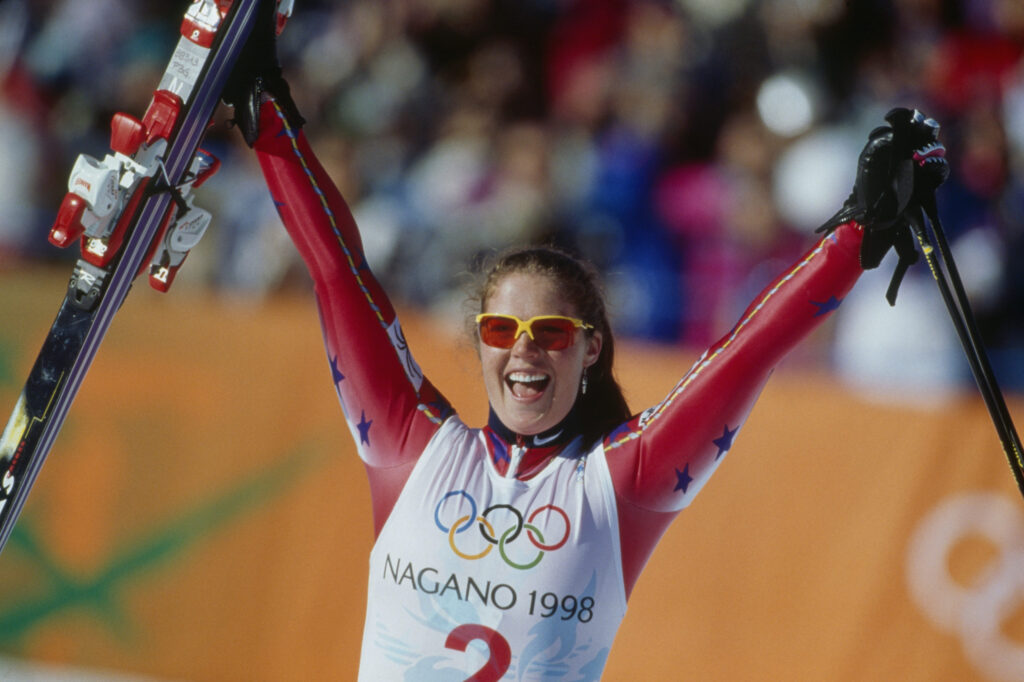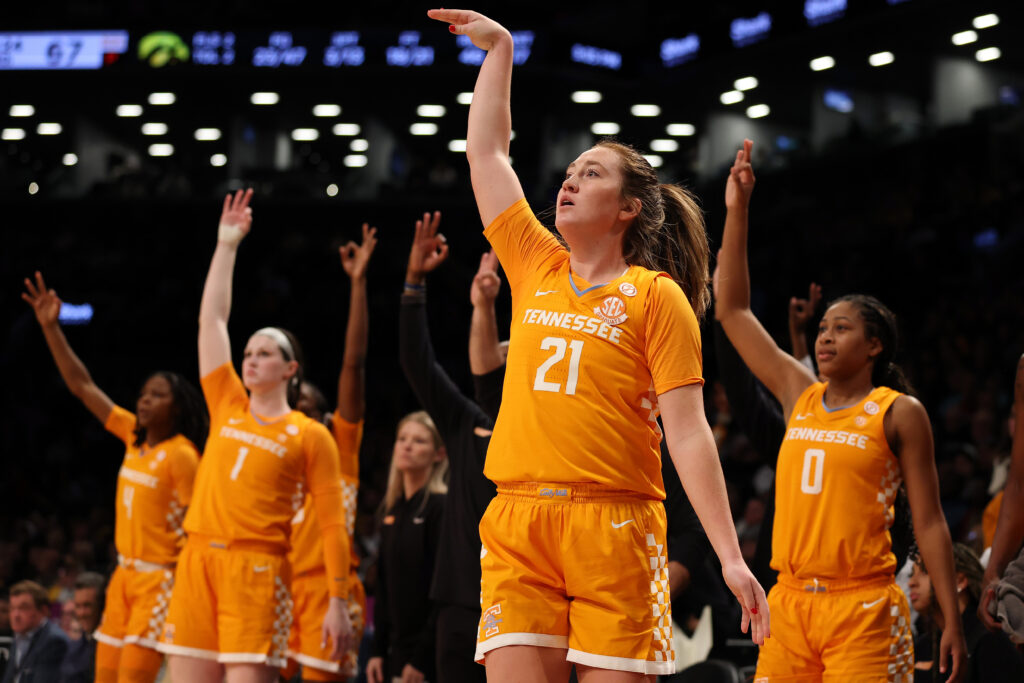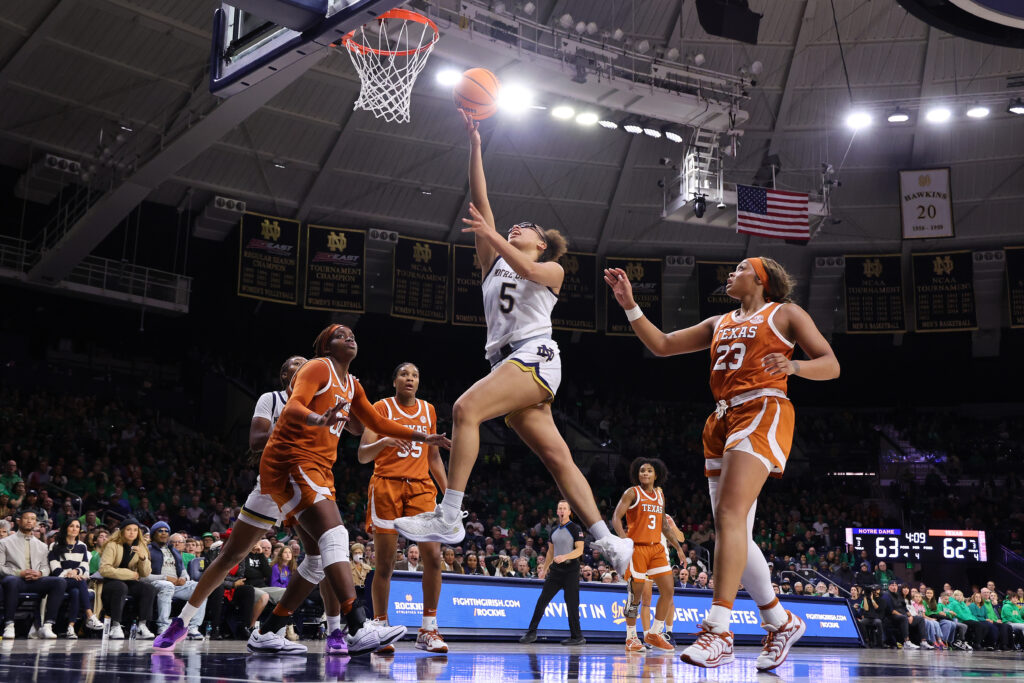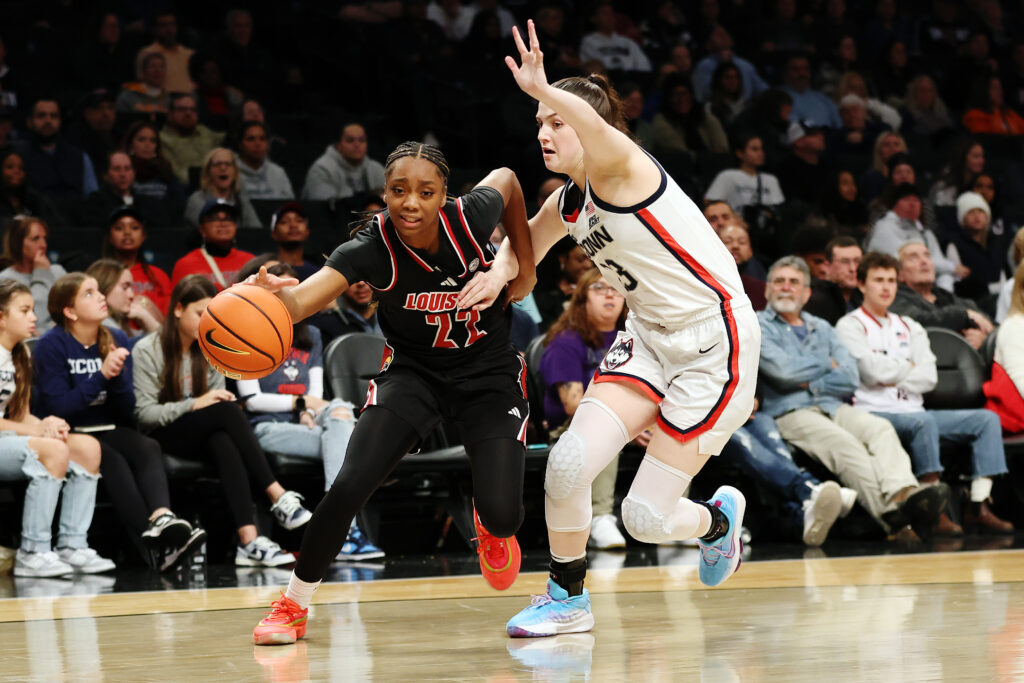Picabo Street is re-telling her story on her own terms with help from champion skier Lindsey Vonn and acclaimed director Frank Marshall.
The Idaho native has quite the tale to tell, decades removed from a groundbreaking skiing career that included a Super-G gold medal at the 1998 Winter Games. As a cultural icon, Street captivated fans with her raw honesty and playful nature and helped American skiing on the map.
Street’s signature candor was on full display as she spoke lovingly about “Picabo,” the 90-minute intimate portrait of her rise to prominence, now available to stream on Peacock before the Beijing Winter Games open on Friday.
“When we decided to go ahead with the film, the first thing I told everyone was that the number one most important thing to me is authenticity,” Street tells Just Women’s Sports.
Vonn, in many ways, is the perfect person to tell Street’s story. As a fan turned teammate and friend, she understands what makes the Olympian tick. In her role as co-director, Vonn appears on screen to interview Street, prodding beyond the medals, the fame and the accolades.
“She knew me already as a person … and as a teammate, so she did a lot of the digging behind it all herself and was really ready for the interview when we did it,” Street says of the revealing conversation that grounds the documentary.
The former Team USA athletes also hit the slopes together for the film. Street said it was an emotional experience since it was the first time Vonn and Street had skied together in a non-competitive environment.
“We didn’t have to talk about the course, and we didn’t have to talk about the weather, and we didn’t have to talk about whether the light was good or not and who was going to win and all the politics that go around it,” says Street, adding that she is often brought to tears when thinking back to the day.
While Street’s athletic achievements are covered in the film, “Picabo” also touches on the skier’s private life, most notably her close yet complex familial ties.
“My family and our relationship engulfed everything, the entire journey,” says Street, whose father’s diabetes diagnosis specifically served as a pivotal moment in her life and career.
The documentary doesn’t shy away from the love and conflict between Street and her late father, including an incident that resulted in a dismissed domestic violence charge against the champion skier. For Street, revisiting her father’s illness and the trying moments between the two has been a cathartic process.
“The term I want to try to use is excavate and cleanse. My big mission is to break the cycle, and as long as I am still bleeding from those wounds, I’m not free to completely break the cycle,” she says. “I can pay my story forward and keep making a difference in other peoples’ lives.”
The documentary’s holistic representation of Street as both an elite athlete capable of staggering physical feats and a human being with nuanced relationships and vulnerabilities comes at a time of heightened awareness around athlete mental health. Gymnast Simone Biles’ decision to step back from several events at the Tokyo Olympics sparked a meaningful conversation around the connection between physical safety and mental wellbeing.
Street, 50, relates to Biles in some ways, especially in the risks of their sport (“You can’t lose track of yourself in the air any more than I can lose track of myself on the downhill course,” she says). One of the differences, however, is the heightened access and attention athletes contend with today.
“Everybody is watching, and everybody thinks they have a little ownership in it, and therefore the decisions you make, they have an opinion about those decisions,” Street says.

Throughout her career, Street endeared herself to the American public, earning the media’s adoration as a captivating and charming public figure. “I grew up without television, so I had no idea what a role model on TV even was like,” says Street, crediting her engaging and authentic front-facing image to her initial naivete. “I was fortunate enough to have a really good go with the media throughout my career and really display my personality, have a good time with it.”
Reminiscing about the shimmy she would do on the podium and her entertaining post-race celebrations, Street says she always wanted the fans to have as much fun as she was having.
The Olympian feels similarly about the film, hoping viewers will sit back, relax and enjoy “the joyful journey of the ride” from the comfort of their own home. At the center of the film is a big heart, with Street citing her three sons as the motivation for telling her story, hoping they would be able to see their mom through a new lens.
“At the core of all of it is love. Love is powerful,” Street says. “It’s a love story of my family, it’s a love story of me and skiing, and ski racing and me, and all the competitors I competed with.”
Clare Brennan is an associate editor at Just Women’s Sports.













